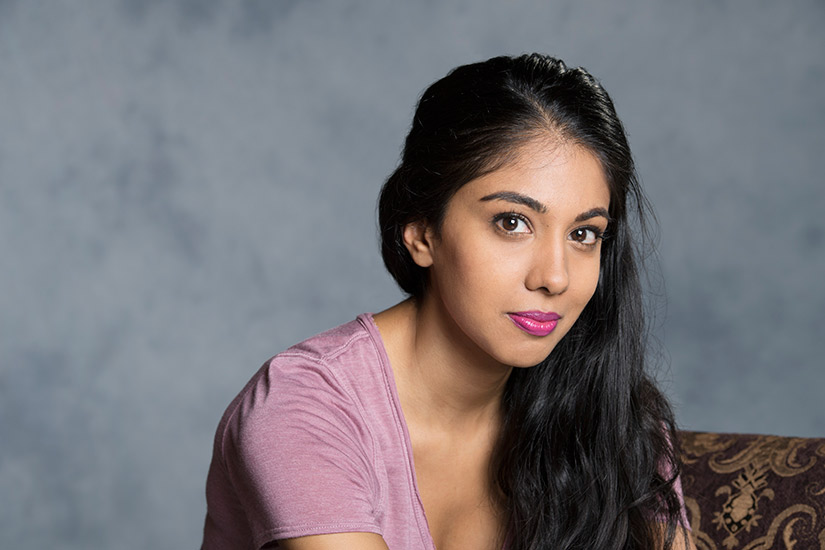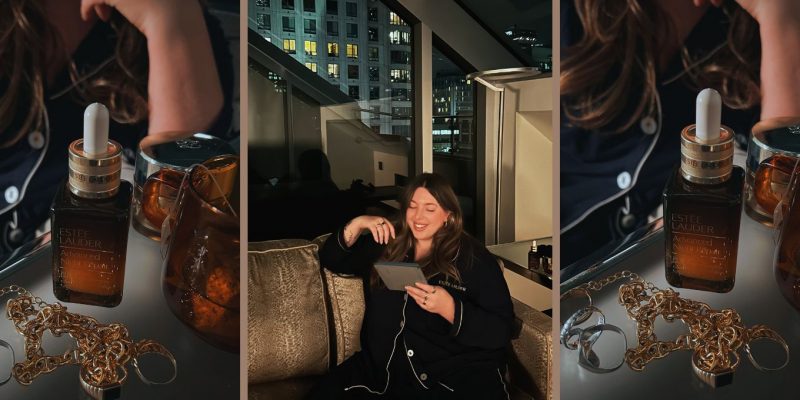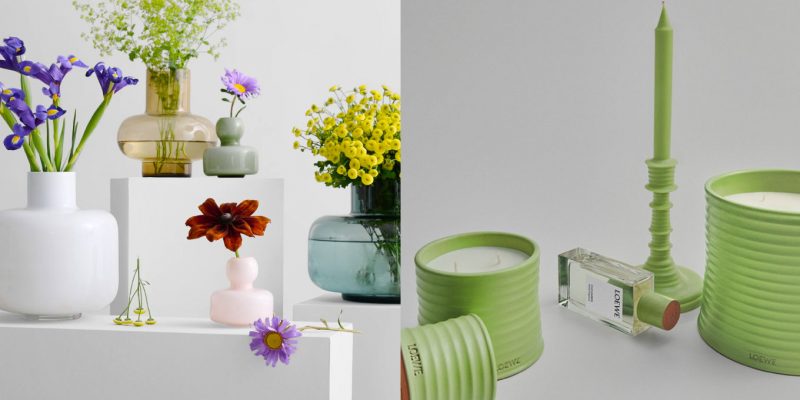Decor
This actor-turned-playwright is taking over the Canadian stage
Sarena Parmar’s debut play is currently on at the Shaw Festival.
by : Patricia Karounos- Jun 15th, 2018

It’s not an uncommon experience to talk to a writer and find that they’re never truly happy with the finished product—just ask Sarena Parmar. We spoke to the Canadian actor and first-time playwright a week away from the opening of her play, The Orchard (After Chekhov)’s opening previews at the Shaw Festival and she was still fine-tuning the script. “The actors will unlock a moment or I’ll see the narrative in a new way and I’ll go, ‘Oh! I can make that pop a bit better.’ So it’s constantly ongoing.”
For The Orchard (After Chekhov), Parmar drew from her childhood in Kelowna, B.C. to adapt Chekhov’s play, The Cherry Orchard (about a Russian family who must figure out how to save their estate and beloved titular cherry orchard). In her version (in which Parmar also has a role), the classic is transformed into a story about the Canadian immigrant experience, focusing on a Punjabi-Sikh family fighting to keep their orchard in the Okanagan Valley. As a bonus: it’s also directed by Parmar’s husband of six years, Ravi Jain.
We spoke with Parmar—who you may also recognize from guests roles on Degrassi and Flashpoint—to talk about jumping between writing and acting and the play itself, which is on at until September 1.
What made you make the jump from acting to writing?
I’ve always had a love for the classic plays and I never saw myself represented in them, I never saw my stories being told on stage. So it was just a meeting of a lot of things, of wanting to create opportunity and wanting my perspective to be told. I thought, “Well, if no one else is going to do it, I’m just going to have to learn how to do it myself.”
You’re acting in the play, too! Is that something you knew you wanted to do while writing it?
I always had a part in mind for myself. The play talks a lot about assimilation and what it means to be Indo-Canadian, what that hybrid is. The character of Annie that I play is really looking to blend both worlds in a time when that did not exist. She’s looking to find a way to not lose the Indian part of her heritage and kind of embrace this new Canadian life.
As a woman of colour, what has your journey through these artistic careers been like?
It made me become very political and very vocal early on in my career about seeing inequities or stereotypical roles and choosing not to do them, or trying to influence the production or creative team in a way that hopefully made the representation more authentic. It took me a long time to embrace taking up space and owning my intelligence, because a lot of people just want you to be quiet and be helpful.
When you’re writing, then, do you think about that political side to yourself? Are you thinking about creating opportunities for other people of colour?
Yes, absolutely. Being a writer gives you a little more power at the table. When this play is going on to be produced [at other venues], I’m able to include an inclusion rider, which is a piece of paper that goes along with the play that says the director, the costume designers have to be people of colour; and that you have to do an Indigenous land acknowledgement; and that there needs to be a cultural consultant to make sure it’s culturally authentic and accurate. I’m able to insist on those things because I’m the writer and I have the product to sell.
You’re working with your husband, who’s directing the play, for the first time. How’s that going?
Listen, no one’s dead, so I consider it a win. [Laughs] He’s an amazing director. It’s such an intense experience, because the story’s so personal. It’s just in all aspects of our lives, and my heart and my mind. We come home and we’re always like, “We cannot talk about work!” And then he’ll start talking about work and I’ll be like, “No! We promised!” Then five minutes later, I’m the one who’s like, “No really, though. What were you going to tell me?”
Newsletter
Join our mailing list for the latest and biggest in fashion trends, beauty, culture and celebrity.
Read Next

Fashion
Are Fashion Brands Getting Greener?
While the fashion industry is making a lot of noise about being more sustainable, a closer look shows that its earth-friendly commitments are often more illusion than reality.
by : Marouchka Franjulien- Apr 19th, 2024

Beauty
What Beauty Packaging Is Actually Sustainable?
We sought out leaders in the field to help us get to the bottom of the blue bin once and for all.
by : Victoria Christie- Apr 19th, 2024

Beauty
Tested and Approved: A Skin Saviour That Works While You Sleep
Wake up with your glowiest skin yet—even if you didn’t clock eight hours.
by : ELLE Canada- Apr 11th, 2024




